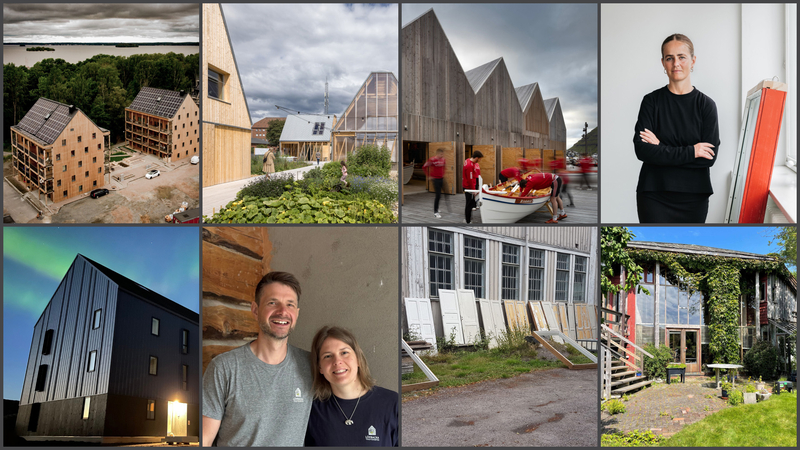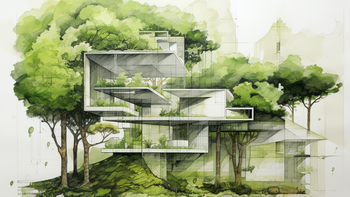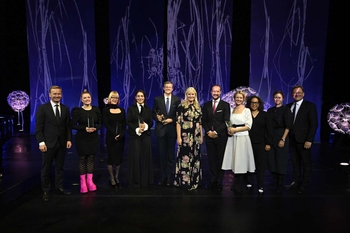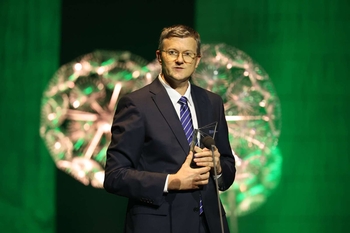The nominations for the Nordic Council Environment Prize 2024

This year, the Nordic Council Environment Prize honours sustainable construction, focusing on transformative (also called adaptive) recycled architecture and regenerative construction.
Eight nominations
The eight names on the shortlist for the Nordic Council Environment Prize 2024 are:
About this year’s theme: Sustainable construction
Construction accounts for approximately 40% of global CO2 emissions, an unsustainable figure at a time of increased demand for new buildings. In its text describing the theme, the adjudication committee emphasised what we pass on to future generations.
Read more about the theme below.
This year, the Environment Prize is highlighting sustainable construction, focusing on adaptive architecture and regenerative construction. Nominations were received for buildings, infrastructure projects, people and organisations.
As the global population continues to grow, new homes and other buildings are taking up more and more land and natural resources. The built environment already accounts for 40% of global CO2 emissions, which is not sustainable. To address climate change, halt the loss of biodiversity and ensure future generations have access to basic necessities like clean water, food and energy, we need to change how we build, live and work.
Although a wide range of sustainable innovations in planning, architecture and construction have helped prevent the overexploitation of natural resources and destruction of the environment in recent years, new projects often aim no higher than making buildings less harmful. Considering how far the planet's limits are being stretched in various areas, that level of ambition is just not good enough.
Achieving the Agenda 2030 climate and environmental goals while promoting social and environmental sustainability will take more than just new and environmentally friendly construction. Maintaining the environmental status quo is not enough. We need to cut emissions, recycle more and use renewable resources. A fundamental rethink is needed to introduce regulations and business models that will support such a radical change. We need to promote adaptive architecture and regenerative construction.
Adaptive architecture modifies buildings to suit new needs instead of demolishing them.
Regenerative construction involves minimising the negative impact of building on the ecosystem. It has a net-positive effect on the environment, designing structures that are not reliant on using limited resources. It also uses reusable materials, incorporates circular thinking and value chains right from the outset and treats new buildings as part of a larger system that produces resources such as clean water, energy, and food.
The prize will be awarded in Reykjavík
The winner of the 2024 Nordic Council Environment Prize will be announced in the autumn (to be updated) and the prize will be awarded at the Session of the Nordic Council in Reykjavík, Iceland. The winner will receive the Nordlys statuette and DKK 300,000.
About the Nordic Council Environment Prize
The Nordic Council Environment Prize has been awarded annually since 1995 to a company, organisation or individual for exemplary efforts to integrate respect for the environment into their business or work or for some other form of extraordinary initiative on behalf of the environment. The nomination process for the award is open, so anyone can submit names.
The purpose of the five Nordic Council prizes is to increase interest in the Nordic cultural community and in environmental co-operation, as well as to recognise outstanding artistic and environmental initiatives.


